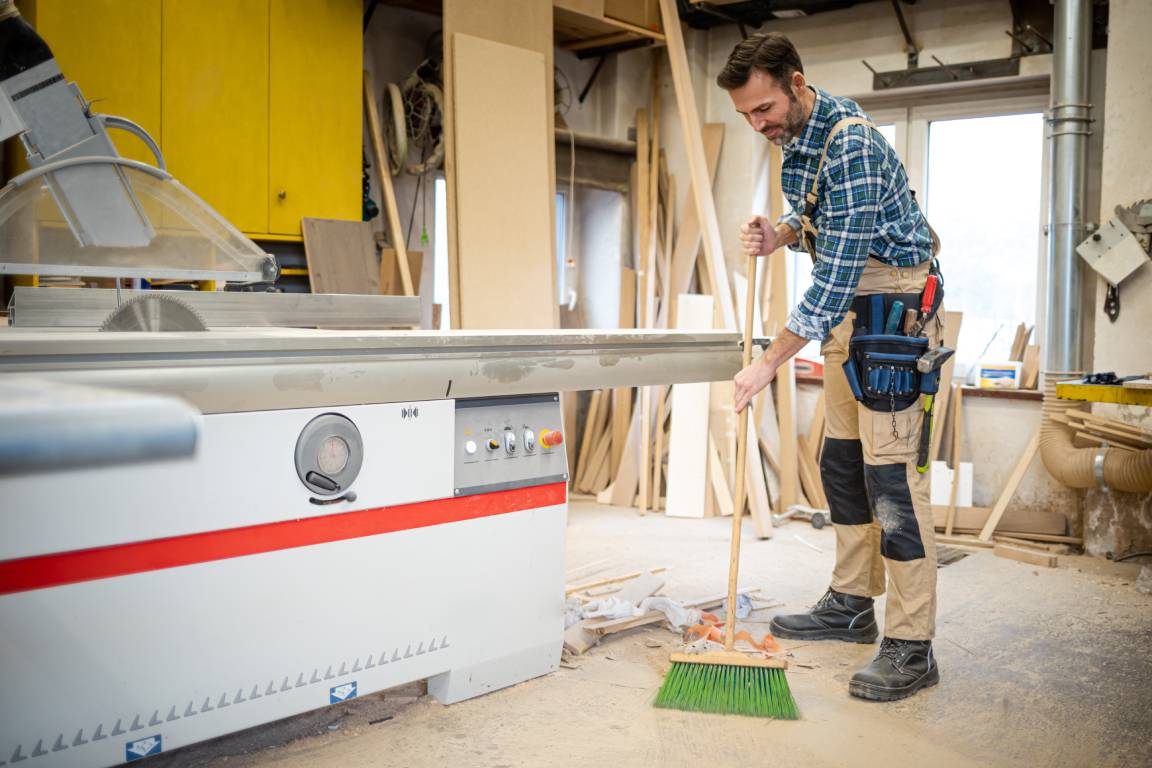Selecting durable surfacing is paramount for DIY enthusiasts and workshop owners constantly grappling with the wear and tear inflicted on their floors by heavy machinery, tools, and projects. The right flooring can withstand heavy weights, resist stains and spills, and ease the strain on your feet and back during long hours of work. Exploring the most durable types of flooring for your workshop ensures you make an informed decision that meets the demands of your hobby or business.
1. Epoxy Flooring
Epoxy flooring tops our list due to its incredible durability, resistance to chemicals, stains, and water, and its ease of cleaning. An epoxy coating transforms any concrete floor into a robust surface that can endure the rigors of heavy equipment and continuous foot traffic. It’s also slip-resistant, which is a bonus in terms of safety in the workshop environment. Keep in mind that there are various reasons why you should never DIY your epoxy flooring and instead leave it to the professionals.
2. Concrete Flooring
Concrete floors offer unparalleled strength and durability for workshops, supporting heavy machinery, such as lathes and saws, without showing much wear. Concrete is also relatively inexpensive and offers a minimalist aesthetic that appeals to many. However, bare concrete can be porous, susceptible to staining, and hard on the feet during extended periods of standing. Sealing or painting concrete can address some of these issues, enhancing its longevity and appearance.
3. Rubber Flooring
Rubber flooring is an excellent choice for workshops that see a lot of manual work. It provides comfort and fatigue relief for those long hours spent on your feet. Rubber is tough enough to handle drops and spills and is easy to clean and maintain since you can easily replace floor tiles or mats if damaged. While it might not support extremely heavy machinery, it’s perfect for medium-duty workshops and provides excellent sound insulation.
4. Stone Tiles
For those looking for natural beauty and durability, stone tiles such as granite or slate might be the answer. These materials can withstand heavy impacts, resist moisture, and are fairly easy to maintain. They are suitable for workshops that double as display spaces or where aesthetics is as important as functionality. However, stone flooring can be expensive and may require professional installation.
5. Vinyl Composite Tile (VCT)
Vinyl composite tile, or VCT, combines decorative versatility with durability. It’s a popular choice for workshops that need a hard-wearing surface capable of resisting chemicals, abrasions, and impacts. VCT comes in various colors and patterns, allowing for customization of your workshop’s appearance. While VCT is durable, it will need regular waxing and polishing to maintain its shine and protective surface layer.
Find the Solution that Fits Your Space
Selecting the most durable flooring for your workshop boils down to understanding the specific needs of your space and the types available. Each flooring option has its unique benefits and potential drawbacks. No matter your choice, investing in quality material is essential for creating a safe, efficient, and long-lasting workshop.











